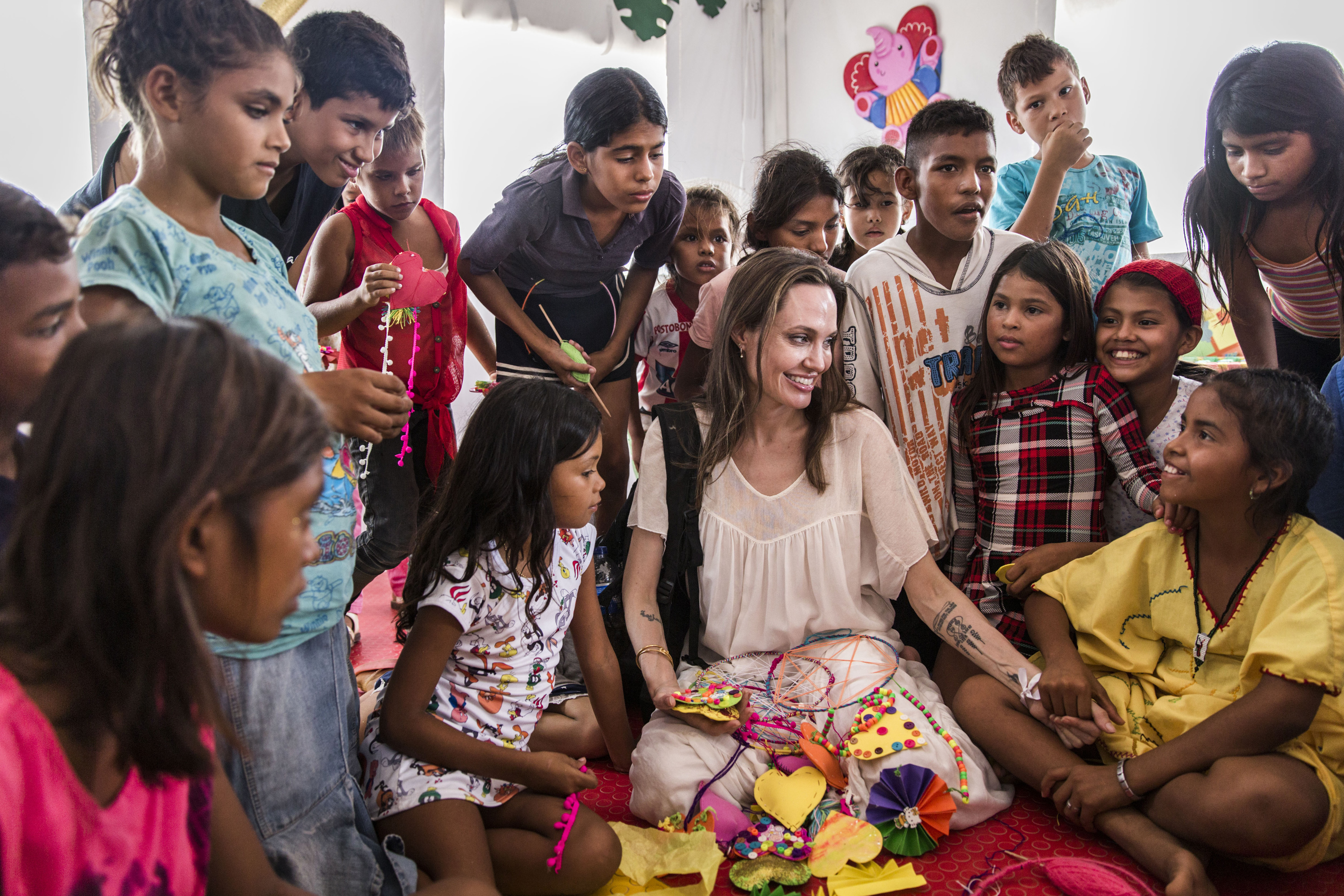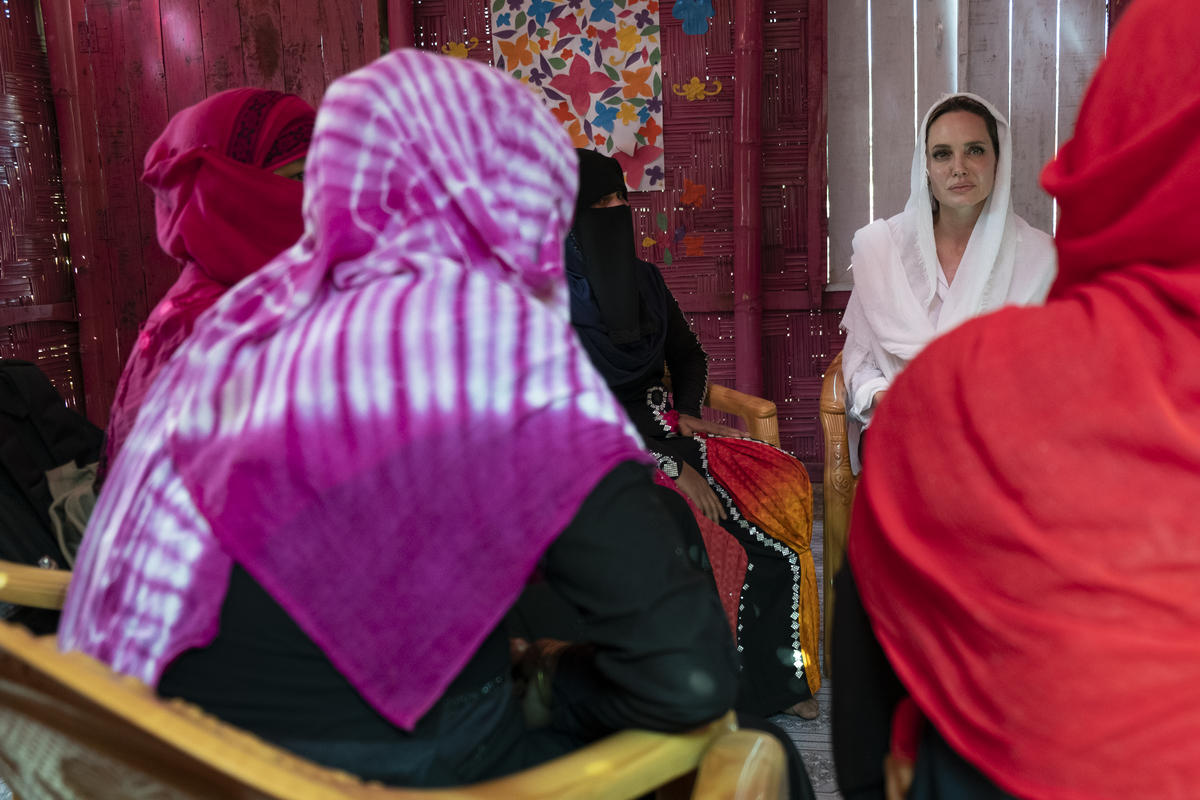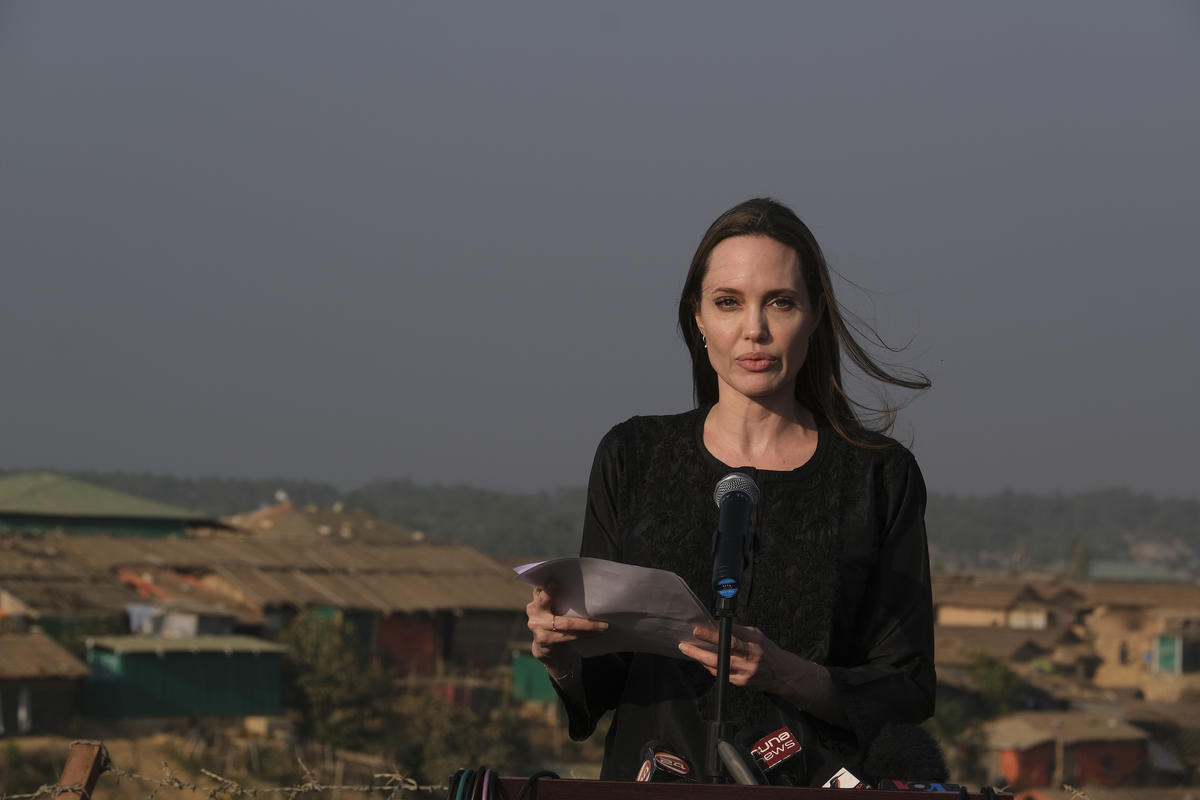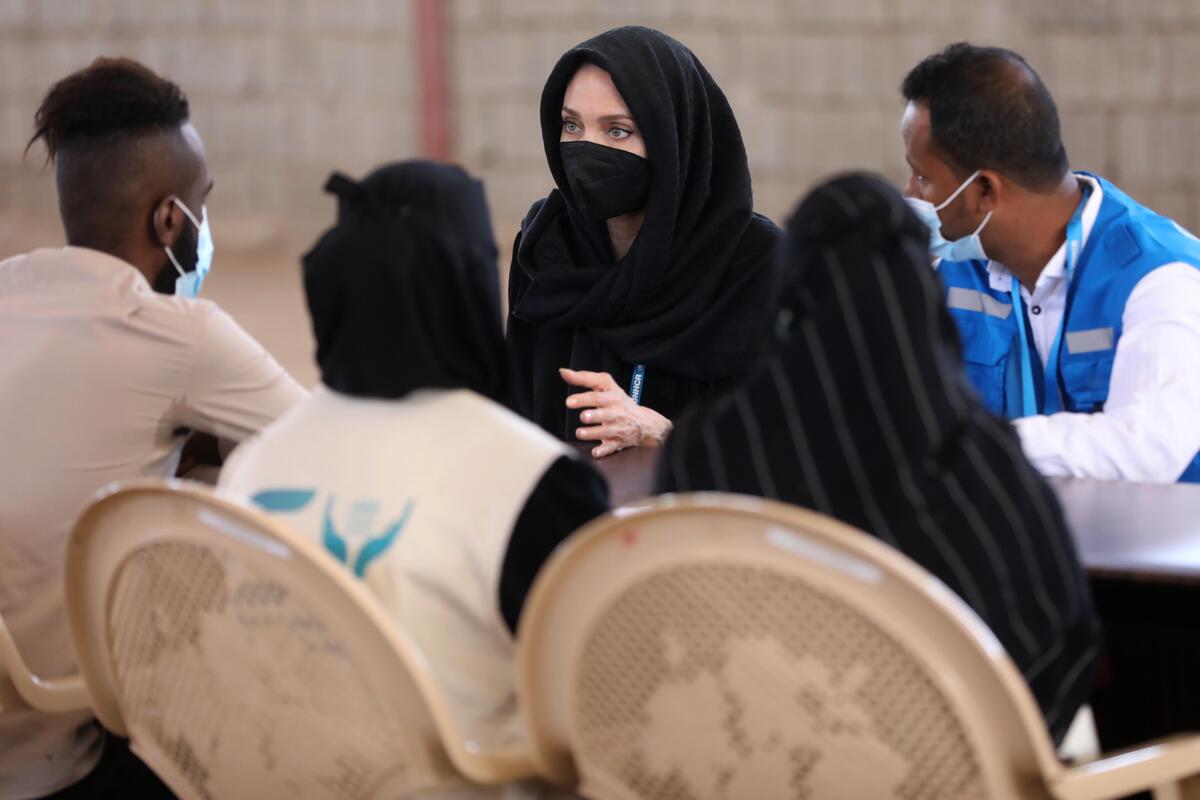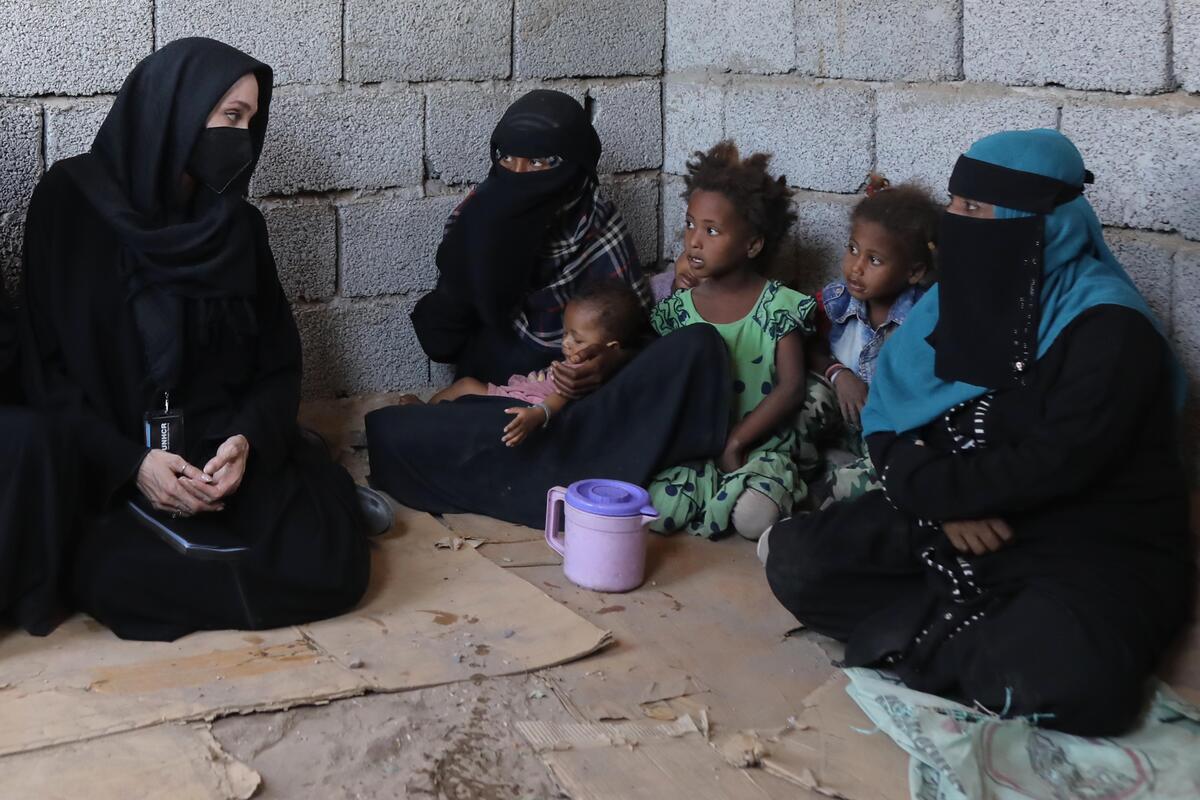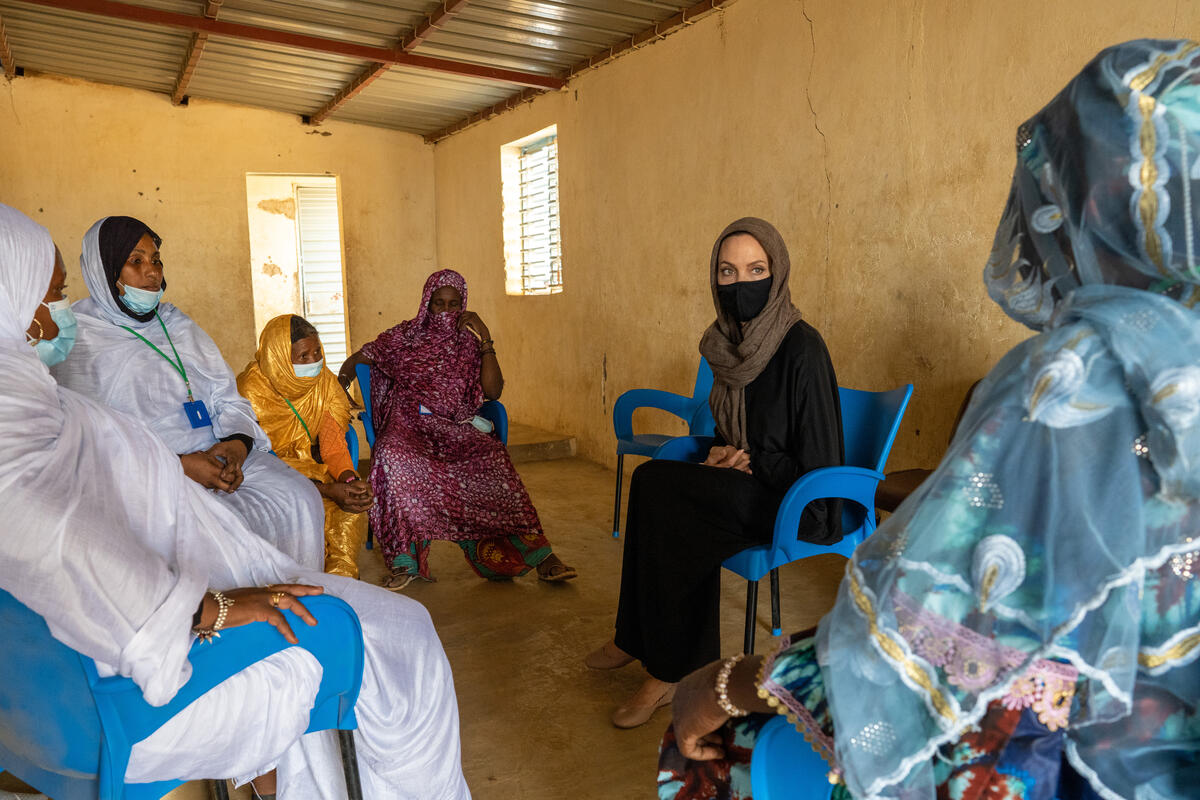Angelina Jolie appeals for more Afghan returnee support after visit
Angelina Jolie appeals for more Afghan returnee support after visit
UNHCR Goodwill Ambassador Angelina Jolie yesterday (Thursday) concluded her first visit to Afghanistan, where she saw both the successes and difficulties of refugee return and reintegration.
Ms. Jolie commented that "the courage, resilience and quiet dignity of returnee families rebuilding their lives against the kind of adversity few of us can imagine shows the human spirit at its best." She appealed for long-term commitments to Afghanistan and greater humanitarian support for the population as the harsh Afghan winter approaches.
Ms. Jolie is no stranger to UNHCR's Afghan operation, one of our biggest worldwide. She had met with Afghan refugees in neighbouring Pakistan twice in recent years and wished to see for herself how returnees were coping on their return to Afghanistan.
Her visit, which ran from Tuesday to Thursday, was also aimed at raising awareness of the refugee issue ahead of an international conference on return and reintegration to be held in Kabul in November. Despite the huge returns to Afghanistan - over 5 million people have gone home over the past six years - approximately 3 million registered refugees remain in neighbouring Iran and Pakistan.
During her mission, Ms. Jolie travelled to Nangarhar province, where almost 20 percent of all returnees have settled since 2002. She visited the Lower Sheikh Mesri and Tangi settlement sites where recent returnees from Pakistan are living on desolate, desert land in tattered tents and makeshift shelters. The returnees told her they could not return to their places of origin due to a lack of land and poor security. She also visited UNHCR income-generating projects for vulnerable women in Jalalabad city.
The goodwill ambassador witnessed similar challenges in Kabul, where she visited families who had returned from Pakistan in 2003 but have still been unable to go back to their home villages. They have been squatting in public buildings in Kabul for several years due to the lack of available land in Parwan, their province of origin. The returnees explained that landlessness and insecurity were not the only obstacles to return. Economic problems in rural areas such as a lack of employment opportunities also influenced their decision to remain in the capital despite the difficult conditions there.
Ms. Jolie ended her trip by calling for more international commitment to help returnee reintegration through supporting long-term national development programmes in Afghanistan. Next month's international conference, co-chaired by the Afghan Ministry of Foreign Affairs and UNHCR, will address how best to ensure the sustainable return of refugees and the displaced in the years to come.



